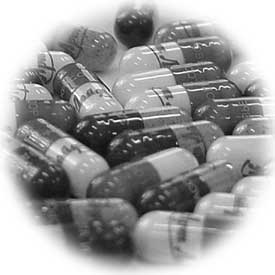![]()
Write us!
[email protected]
July/August 2004 • Vol 4, No. 7 •
Cuba cancer drug study OK’d
By Vanessa Bauzá and William E. Gibson

A California biotechnology company became the first to receive U.S. government approval to license a trio of promising Cuban cancer drugs, despite new federal restrictions aimed at limiting travel and the flow of cash to Cuba.
More than three years after learning of the Cuban drugs at a U.S. oncology meeting, CancerVax chief executive David Hale announced Thursday that the Treasury Department’s Office of Foreign Assets Control, which oversees the 40-year-old trade and travel embargo, will allow his company to test the drugs in the United States.
If clinical studies prove successful, the drugs, which work to help the body’s immune system attack the growth of tumors, could become available in 2008 to fight a range of diseases including lung, breast and colon cancer.
“I really think the reason we were able to receive this license is because the treatment of cancer and disease transcends politics,” said Hale, who returned from a final negotiating trip in Havana to his office in Carlsbad, Calif., on Wednesday. “We had support from a number of congressmen and women who felt the potential benefits to mankind outweighed the political issues and were supportive. We really didn’t have opposition from anyone we talked to, even those people who were strongly anti-Castro.”
The pharmaceutical company SmithKline Beecham, now known as GlaxoSmithKline, paved the way for CancerVax’s approval, when in 1999 it obtained a license for a unique Cuban meningitis B vaccine, which is in clinical testing.
Negotiations call for CancerVax to pay $6 million to the commercial arm of Havana’s Center for Molecular Immunology over the next three years of the drug’s testing and development, Hale said.
Consistent with the U.S. government’s efforts to deny hard currency to the Cuban government, payments must be made in goods like U.S. food, medicines and medical supplies. An additional $35 million would be paid if the drugs reach the market. That payment would be split between goods and cash.
The State Department said it recommended approval of the license on humanitarian grounds, but pointed out that the deal would provide relatively little benefit to the Cuban government.
“This is a unique case in that there is the potential to successfully treat a deadly disease using technology not otherwise available,” said Gonzalo Gallegos, a State Department spokesman.
“The license issued in this case minimizes the flow of hard currency and sensitive technology to the Castro government, and directs revenue towards the purchase of U.S. agricultural products, which will more likely benefit the Cuban people,” Gallegos said.
John Kavulich, president of the New York-based U.S. Trade and Economic Council, said the move to license the Cuban drugs does not signal a policy shift in the Bush administration.
“A precedent existed and they are issuing the license based on the precedent,” Kavulich said.
“The thinking in the Bush administration is that while they find it abhorrent that Cuba might benefit [from the deal], it would be a public relations disaster if a child in the U.S. should die from a lack of access to something developed in Cuba, based on reasons of politics.”
The Cuban government has invested $1 billion in building up an advanced biotechnology industry. While Cuban scientists’ well-publicized hopes of cloning a prodigious milk cow have flopped, their success in producing a range of cutting-edge drugs, including Hepatitis B and Meningitis vaccines, has been a source of pride.
Vanessa Bauzá can be reached at [email protected]. Vanessa Bauzá reported from Havana and Washington Bureau Chief William E. Gibson from Washington. Staff Writer Doreen Hemlock contributed to this report, which was supplemented with information from The New York Times.
—South Florida Sun-Sentinel, July 16 2004
Write us
[email protected]